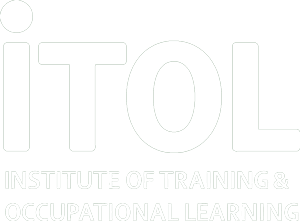Do you find it hard to keep your students on your side?
Training and development relies heavily on the participation of the students, so it is important that as trainers we keep our students on board.
There are 9 things that trainers should avoid asking their students to do if they want to run a successful session. iTOL find that avoiding these basic mistakes will help you and your students to develop.
They are as follows:
-
BUSY WORK
Busy work is a task or assignment given to students with no real purpose other than to keep them busy, or simply give them something to do. Asking your students to do pointless work will frustrate them and decrease engagement.
-
LISTEN ALL THE TIME
Students should not always listen, studies show that adults have a 5-10 minute attention span. Don’t force your students into a tedious situation, break your teaching up break up your training with activities to keep them engaged.
-
ALWAYS WORK IN A GROUP
Group work is a powerful tool, it allows students to use each other to develop and ease some of the tension involved in the learning process. However, do not expect your students to engage in continual group work, some students work better in a personal environment (for this reason iTOL keep our training classes to no more than six students) this allows for a mixture of group and individual work. Use group work as a way to allow your students to work independently, and a way to measure the results of their learning.
-
COMPETE WITH OTHER CLASSMATES
Some may say that a little competition is healthy, it keeps us poised and ready to go. However, this may have a negative impact on some students, the competition may become the focus rather than the learning. If you put your students in an uncomfortable position they are less likely to learn from your training.
-
PERFORM A TASK WITHOUT MODELLING
It is important to have a sense of empathy in your training sessions, you have to ask yourself if you could complete the task if you didn’t properly understand it. The chances are you’ll be teaching a skill or topic that is completely new to your students, so you cannot expect them to perform a task without a proper understanding. The best way to express understanding is through modelling the task yourself, it is much easier to show rather than tell.
-
VALUE ANSWERS INSTEAD OF QUESTIONS
It is important that you can provide the answers to any query that may be asked, but do not ask your students to value these answers over any questions that they may have. An important part of learning and development is questioning anything that you may not understand, for some people this is an important part of the learning process.
-
SET VAGUE GOALS
Clear goals mean that you can produce some really clear objectives, if you have clear objectives you will be able to measure your progress. Don’t encourage vague goals amongst your students as this will be of no benefit to them. If they have a specific goal your training can be tailored to achieve this.
-
BE SOMEONE THEY ARE NOT
You will come across many different personality types, some personalities may lend themselves to what you are teaching, and some may not. This doesn’t mean that one type of personality is better than the other, it is your job as a trainer to cater for all personalities so that everybody benefits.
-
GIVE UP
This may seem obvious, but you should never tell your students to give up. Everybody has to start somewhere, including yourself as a trainer. Adapt your strategy to cater for them and encourage their development instead.
Enter your details below for more L&D tips and tricks:



